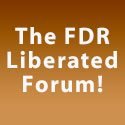Once upon a time I read a book by Ayn Rand.
Yes, it turns out my story is the same as about 99% of the libertarians I know!
I don’t feel comfortable calling myself a philosopher, although I try. Like Edie Brickell, just shove me into shallow waters before I get too deep. So—it would have been kind to call me an Objectivist when I was reading Rand. I just thought she was cool.
I started down a well-worn path.
Rand’s thinking impacted me slowly. At first, it made me feel better about being a (U.S.) political conservative. But still, my brains kept spilling into both camps. I think murder is wrong, but my conservative pals were just crazy about the death penalty. And they thought the world would just fall apart if we didn’t dictate which people in love would be allowed to marry each other. I believed we need a strong defense, but I never got a say when the US confiscated my money and financed a military to go to foreign countries who weren’t attacking us and killed a lot of people. I guess this is a well-trod path for libertarians, but the more deeply I examined both US political parties, the more I felt like there was no place for someone with my point-of-view.
Then about two years ago, I ran into a video on YouTube called An Introduction to Philosophy,” which was fascinating (and something I could understand!) and narrated by a pleasant-sounding man named Stefan Molyneux.
I discovered FreeDomain Radio.
Like many others, I followed the video to his site FreeDomain Radio, (FDR) where I began following the conversations and listening to his many podcasts on libertarianism. I discovered I was a libertarian, but didn’t know it. The conversations on his site seemed cordial. The podcasts seemed brilliant. More than that, above all else—was this tantalizing idea of market anarchy. If my mind was taking a bus ride toward embracing smaller and smaller government, would a belief in market anarchy be the point at which the driver calls out “Last stop!”? I don’t know yet. I’m still on the fence, but I began to seriously explore it on FDR.
But there a few things that bothered me. There was a lot of talk at FDR about “banning”—more than I had seen at other forums. Sometimes the same cordial people on the forum seemed a lot less cordial on the chatroom. But, overall, and I couldn’t explain it—I kept getting this feeling of gloominess—so many people talking about terrible childhoods.
Curious, I began to search to see what others were saying about FDR. One of the first sites I encountered was a site called Liberating Minds, which had an entire forum section devoted to FDR.
I didn’t care much for Liberating Minds. It seemed like there was a lot of anger there—not like the courtesy and respect I saw on FDR. I spent a couple days checking it out, buzzing through some of the posts. I had just about decided to write Liberating Minds off altogether when I saw this thread about someone on FDR named Rodzilla. The Liberating Minds members were talking about Kari Peterson and her attempts to reach her brother-in-law on the FDR site. Eventually, Kari herself signed into Liberating Minds to seek further information on Rod.
deFOOing and pyschology—I began to see the dark side.
Rod had engaged in a strange FDR-promoted practice known as deFOOing (which essentially means leaving your entire family and friends behind with the intention of never speaking to them again). I couldn’t understand any of it—how your parents were somehow preventing you from believing in market anarchy. I read the thread in question on FDR. Kari (who as far as I could tell had never done anything to offend Rod) was desperately trying to get some acknowledgement of him. Instead, Molyneux and other FDR members gathered around her to stonewall the issue, while picking her apart with demeaning questions.
I thought it was brutal.
Then I began to read Liberating Minds more closely, using a lot of the inside knowledge there to get a picture of FDR I hadn’t seen before. I skipped ahead to all of the FDR podcasts on deFOOing that I could find. I read Molyneux’s treatise on the psychology/logic behind it all, a book called On Truth: The Tyranny of Illusion.
Honestly? It was completely outside my experience or understanding. I moved out of my parents’ home several years ago. We fought tons almost a decade ago, when I was a teenager, but our relationship is pretty good now. My mom hopes one day I’ll see the light and believe in God again. My dad is almost religious about his right to vote (for political candidates who have no more interested in leading us back to true freedom than Stalin! Best of luck with that, Dad!) I think they have crazy ideas but there is more to our family than that and I love them anyway. They look at me the same way. And so it goes.
The idea that there are vast subterranean forces at work in my mind, brought on by parental abuse I never recognized…no, just not feelin’ it.
To this day, I’m fascinated by the typical first-posters at FDR. Their posts run something like this: “Hi! I just realized my family is evil. So I’m here to learn about the philosophy of market anarchy! ‘Sup, everyone?”
That post makes perfect sense to everyone on FDR. How does that happen?
I suddenly started to get the picture.
I began to realize that my impressions of both FDR and Liberating Minds were 180° wrong. The “niceness” I saw on FDR was an enforced niceness—a combination of peer pressure and unstated but understood rules by Molyneux that ensured a tight ideological framework for all conversations. I continue to be struck by the paradox of this—the most rigidly controlled site about freedom on the internet!? If freedom is the subject, then the boards on FreeTalkLive, which I found later, made more sense to me. They just let it rip. Small wonder that their conversations tend to be both deeper and more fun than the typical fare at FDR.
The anger you occasionally find on Liberating Minds comes from a few members who at one time had a close relationship with Molyneux and suddenly found themselves discarded. Because it’s personal, every story is different and every ex-FDR member reacts to their story in their own way. I talk more about that in “The Defining of Liberating Minds.”
Finally, as I began to see things as they are, I made my first, cautious post on Liberating Minds—Is FDR Cruel?
So I found myself talking with (and eventually becoming friends with) the folks on Liberating Minds, while I continued to delve into ideas expressed on FDR.
Wait a minute—is FDR a cult?
I began to notice questions on other sites whether FreeDomain Radio is a cult. At the time, I dismissed them because they sounded extreme. And every once in a while someone would dig up some criteria for determining if some group is a cult and would use it to prove FDR is not.
One thing I knew for sure. In nearly every conversation, people arguing whether or not FDR is a cult actually had no working knowledge of cults in general—the various types of cults, how they operate, who they target, how they influence, etc. So I started to educate myself on that.
And I continued to examine the rapidly evolving FDR. I was fascinated with Molyneux, although it was a weird fascination—certainly not the adoring fascination shared by many FDR members. I was more interested in the things he did that seemed to counter the things he said. I wanted to know if this remarkable idea he expressed—binding philosophy, economics, relationships, psychology, religion, etc., into one grand unifying theory—had any real merit. Or was it just another self-proclaimed-Guru scam? And the more deeply I looked, the more interesting it all became. At one point, I described myself as Molyneux’s infernal Boswell.
Then there was that Guardian article…
So I was minding my own business, gathering my information on FDR and Molyneux, thinking perhaps I might create a blog one day…and everything blew up.
A mother had gone the Guardian newspaper in the UK to complain about a cult in Canada—FDR— that had influenced her 18-year-old son to leave home and refuse all further contact with any member of the extended family or his friends. Another article followed in Toronto’s Globe and Mail. Still others in Sky News and on the BBC. It seemed as if the media was exploding with scrutiny on this man and his impact on families.
Before too long, Molyneux issued a response to the Guardian. As I read his response, I realized that my knowledge of FDR helped me see something that people with no FDR experience could possibly see. I saw the big picture—not just what Molyneux was saying, but what he wasn’t. The big meanings behind the harmless-sounding phrases he used. The big truths behind the little cover-ups.
And so I analyzed his response, theme-by-theme, so that anyone who had never even heard of FDR could fully understand his response in way that even FDR members cannot. When I was done, it was far too lengthy to post on a bulletin board, so voilà, a blog was born
Now that the blog is up and running, I have quite a few other articles planned, including a look at Molyneux’s masterwork, UPB, and a deeper examination of the cult question. If you have any questions or comments about anything here, I hope you’ll come to Liberating Minds and make yourself heard. That’s where you’ll find me most often.
Thanks for reading!







